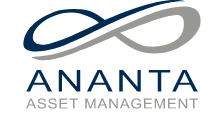Foundations of Decentralized Finance
DeFi is built upon blockchain technology, which enables peer-to-peer financial transactions without the need for traditional intermediaries such as banks or brokers. Smart contracts, which are self-executing computer programs, power many DeFi applications, offering functionalities such as lending, borrowing, trading, and the creation of complex financial products, all without requiring the involvement of a trusted third party.
Opportunities for Traditional Institutions
For traditional financial institutions, the rise of DeFi presents both challenges and opportunities. On one hand, DeFi challenges their intermediation model, potentially threatening their long-term revenues and relevance. On the other hand, DeFi offers opportunities for collaboration and innovation. Financial institutions can explore partnerships with DeFi projects to offer new products and services to their customers, or integrate DeFi solutions into their own offerings to enhance operational efficiency and reduce costs.
Risks for Traditional Institutions
However, DeFi also presents risks for traditional institutions. The decentralized and often unregulated nature of DeFi can create challenges in terms of regulatory compliance and asset security. DeFi projects are often subject to security vulnerabilities and exploits, which can result in significant losses for users. Additionally, DeFi has the potential to undermine trust in the traditional financial system by offering alternatives that bypass established institutions.
Evolution of the Financial Landscape
Despite these challenges, the rise of DeFi represents a significant evolution of the financial landscape. It highlights the limitations of traditional financial models and stimulates innovation across the industry. Traditional financial institutions must be prepared to adapt to this new environment by exploring new ways of working with DeFi players and integrating lessons from DeFi into their own practices and infrastructure.
Conclusion
In conclusion, the rise of decentralized finance presents both opportunities and risks for traditional financial institutions. While DeFi challenges their intermediation model, it also offers opportunities for collaboration and innovation. Financial institutions must be prepared to navigate this new environment by understanding the challenges and opportunities associated with DeFi, and taking a proactive approach to adapt to changes in the financial landscape. As DeFi continues to gain importance, its impact on traditional institutions and the overall financial sector will only intensify, shaping the future of finance.













